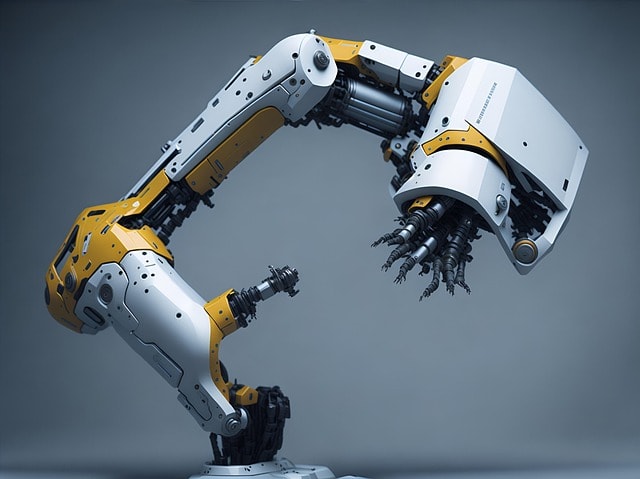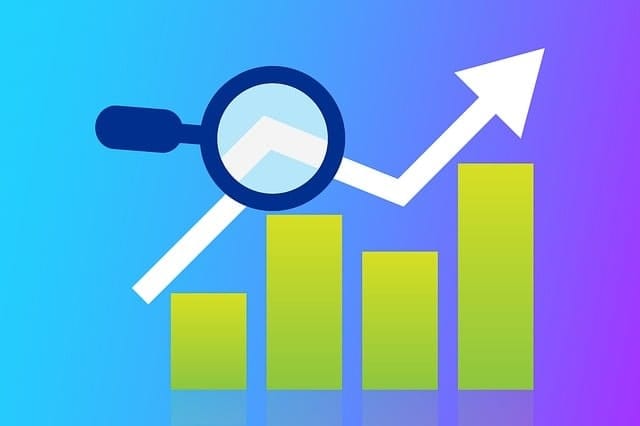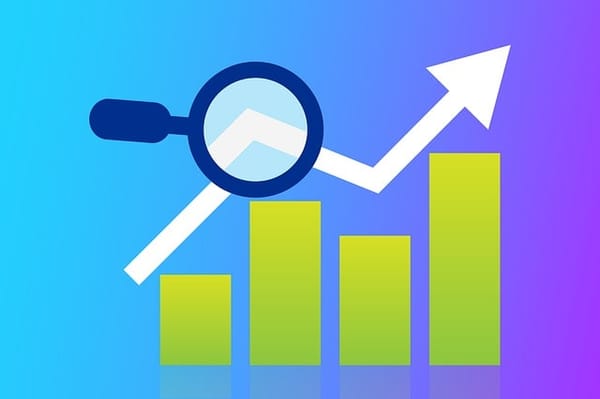Artificial Intelligence (AI) is no longer a futuristic concept; it’s a present-day reality reshaping industries across the globe. As we look towards 2025, the AI market is poised for significant growth, driven by technological advancements and the complexities of adopting AI technologies. This article delves into the AI market forecast for 2025, exploring the factors contributing to its expansion, the role of AI in various sectors, and the potential challenges and opportunities that lie ahead.
Key Takeaways:
- Significant Growth Expected: The AI market is projected to witness substantial growth by 2025, with a compound annual growth rate (CAGR) that reflects its expanding influence across industries.
- Diverse Applications: AI's integration into sectors like healthcare, finance, and manufacturing is driving innovation and efficiency, with applications ranging from natural language processing to computer vision.
- Global Impact: Regions such as North America, Asia Pacific, and Europe are investing heavily in AI infrastructure, contributing to the global AI market's expansion.
The Current State of the AI Market
The artificial intelligence market has been experiencing rapid growth, fueled by advancements in machine learning, natural language processing, and computer vision. AI technology is being adopted across various industries, from healthcare to finance, enhancing operational efficiency and enabling data-driven decision-making. As businesses seek to gain competitive advantages, AI solutions are becoming integral to their strategies.
In North America, the AI market is particularly robust, with tech giants leading the charge in AI research and development. The region’s focus on AI infrastructure and innovation is setting the stage for continued growth. Meanwhile, countries like South Korea and Japan are also making significant strides in AI adoption. The South Korea artificial intelligence software market is noteworthy, with detailed insights into market assessment, strategic outlook, and segmentation by technology, deployment model, and application. This includes historical and projected market sizes, trends, and competitive analysis, emphasizing the growth potential and distinctive dynamics of the artificial intelligence sector within South Korea.

AI's Role in Transforming Industries
AI’s impact on industries is profound, with applications that range from automating complex tasks to enhancing customer experiences. At its core, AI is a computational approach that aims to replicate or simulate cognitive functions traditionally associated with human intelligence, such as reasoning, decision-making, and learning. In the healthcare sector, AI is revolutionizing diagnostics and treatment planning, enabling more accurate and personalized care. AI-powered tools are also transforming the finance industry, where they are used for fraud detection, risk management, and customer service.
The manufacturing sector is witnessing significant changes due to AI integration, with AI systems optimizing production processes and reducing costs. In agriculture, AI applications are improving crop management and yield predictions, while in transportation, AI is enhancing safety and efficiency through autonomous vehicles and smart logistics solutions.
The Rise of the Generative AI Market
Generative AI, a subset of artificial intelligence, is gaining traction for its ability to create new content, from text to images. This technology is being leveraged in creative industries, where it is used to generate music, art, and even literature. The generative AI market is expected to grow significantly by 2025, as businesses explore its potential to innovate and differentiate their offerings.
AI models are becoming increasingly sophisticated, enabling more complex and nuanced outputs. This advancement is opening up new possibilities for AI applications, from virtual assistants that can engage in natural conversations to AI systems that can design products and services tailored to individual preferences.
AI Adoption in North America
North America remains a leader in AI adoption, with a strong focus on AI research and development. The region's tech sector is investing heavily in AI infrastructure, driving innovation and creating new opportunities for businesses. The growing demand for AI-powered solutions is reflected in the increasing number of AI startups and the expansion of AI capabilities across industries.
The AI market in North America is characterized by a diverse range of applications, from speech recognition and data analytics to AI-powered customer service solutions. As companies seek to enhance their business strategies and improve operational efficiency, AI is becoming an essential component of their digital transformation efforts.

The Global AI Market Landscape
The global AI market is witnessing rapid growth, with regions like Asia Pacific and Europe playing a significant role in its expansion. In Asia Pacific, countries such as China, Japan, and South Korea are investing heavily in AI technology, driven by the rising demand for AI applications in sectors like manufacturing, healthcare, and finance. This investment is contributing to the overall market value, which includes not only the revenue from AI services but also the value of related products and services integral to the AI market.
Europe is also making strides in AI adoption, with Germany leading the charge in AI research and development. The region’s focus on AI integration and innovation is contributing to the global AI market’s growth, as businesses seek to leverage AI to gain competitive advantages and improve business processes.
AI's Impact on Business Processes
AI is transforming business processes across industries, enabling companies to streamline operations and enhance decision-making. AI-powered tools are being used to automate routine tasks, freeing up human resources for more strategic activities. This shift is leading to increased productivity and cost reduction, as businesses optimize their operations with minimal human intervention.
Data-driven decision-making is another key benefit of AI adoption, as companies leverage AI systems to analyze large volumes of data and extract actionable insights. This capability is enhancing business strategies and enabling companies to respond more effectively to market changes and customer needs.
The Role of AI in Data Analytics
Data analytics is a critical component of AI technology, enabling businesses to make informed decisions based on data-driven insights. AI systems are being used to analyze complex datasets, identify patterns, and predict future trends, providing companies with a competitive edge in the market.
AI-powered data analytics solutions are being adopted across various industries, from finance to healthcare, where they are used to optimize business processes and improve customer experiences. As the demand for data-driven decision-making continues to grow, AI's role in data analytics is becoming increasingly important.

AI in Healthcare: Revolutionizing Patient Care
AI is revolutionizing the healthcare industry, with applications that range from diagnostics to treatment planning. AI-powered tools are being used to analyze medical images, identify diseases, and recommend personalized treatment plans, improving patient outcomes and reducing healthcare costs.
The integration of AI in healthcare is also enhancing patient experiences, with AI-powered virtual assistants providing personalized support and guidance. As the healthcare industry continues to embrace AI technology, the potential for improved patient care and operational efficiency is significant.
AI in Finance: Enhancing Risk Management
The finance industry is leveraging AI to enhance risk management and improve customer experiences. AI-powered tools are being used to detect fraud, assess credit risk, and optimize investment strategies, providing financial institutions with a competitive edge in the market.
AI's role in finance is also extending to customer service, where AI-powered chatbots and virtual assistants are being used to provide personalized support and guidance. As the demand for AI-powered solutions continues to grow, the finance industry is poised for significant transformation.

AI in Manufacturing: Optimizing Production Processes
AI is transforming the manufacturing industry, with applications that range from optimizing production processes to enhancing quality control. AI-powered tools are being used to monitor production lines, identify inefficiencies, and recommend improvements, leading to increased productivity and cost reduction.
The integration of AI in manufacturing is also enhancing product quality, with AI systems being used to detect defects and ensure compliance with industry standards. As the manufacturing industry continues to embrace AI technology, the potential for improved operational efficiency and competitiveness is significant.
AI in Agriculture: Improving Crop Management
AI is revolutionizing the agriculture industry, with applications that range from crop management to yield predictions. AI-powered tools are being used to monitor crop health, optimize irrigation, and predict weather patterns, improving agricultural productivity and sustainability.
The integration of AI in agriculture is also enhancing decision-making, with AI systems providing farmers with data-driven insights and recommendations. As the agriculture industry continues to embrace AI technology, the potential for improved crop management and yield predictions is significant.
AI in Transportation: Enhancing Safety and Efficiency
AI is transforming the transportation industry, with applications that range from autonomous vehicles to smart logistics solutions. AI-powered tools are being used to enhance safety, optimize routes, and improve fuel efficiency, leading to increased operational efficiency and cost reduction.
The integration of AI in transportation is also enhancing customer experiences, with AI-powered systems providing personalized support and guidance. As the transportation industry continues to embrace AI technology, the potential for improved safety and efficiency is significant.
AI in Retail: Personalizing Customer Experiences
AI is revolutionizing the retail industry, with applications that range from personalized recommendations to inventory management. AI-powered tools are being used to analyze customer data, identify preferences, and recommend products, enhancing customer experiences and driving sales.
The integration of AI in retail is also optimizing inventory management, with AI systems being used to predict demand and manage stock levels. As the retail industry continues to embrace AI technology, the potential for improved customer experiences and operational efficiency is significant.
AI in Education: Enhancing Learning Experiences
AI is transforming the education industry, with applications that range from personalized learning to administrative automation. AI-powered tools are being used to analyze student data, identify learning gaps, and recommend personalized learning paths, enhancing student outcomes and engagement.
The integration of AI in education is also optimizing administrative processes, with AI systems being used to automate routine tasks and improve efficiency. As the education industry continues to embrace AI technology, the potential for improved learning experiences and operational efficiency is significant.
AI in Energy: Optimizing Resource Management
AI is revolutionizing the energy industry, with applications that range from resource management to predictive maintenance. AI-powered tools are being used to monitor energy consumption, optimize resource allocation, and predict equipment failures, improving operational efficiency and sustainability.
The integration of AI in energy is also enhancing decision-making, with AI systems providing data-driven insights and recommendations. As the energy industry continues to embrace AI technology, the potential for improved resource management and sustainability is significant.

AI in Telecommunications: Enhancing Network Performance
AI is transforming the telecommunications industry, with applications that range from network optimization to customer service. AI-powered tools are being used to monitor network performance, identify issues, and recommend improvements, enhancing service quality and customer satisfaction.
The integration of AI in telecommunications is also optimizing customer service, with AI-powered chatbots and virtual assistants providing personalized support and guidance. As the telecommunications industry continues to embrace AI technology, the potential for improved network performance and customer experiences is significant.
AI in Real Estate: Streamlining Transactions
AI is revolutionizing the real estate industry, with applications that range from property valuation to transaction management. AI-powered tools are being used to analyze market data, assess property values, and streamline transactions, improving efficiency and transparency.
The integration of AI in real estate is also enhancing customer experiences, with AI-powered systems providing personalized support and guidance. As the real estate industry continues to embrace AI technology, the potential for improved transaction management and customer experiences is significant.

AI in Entertainment: Creating Immersive Experiences
AI is transforming the entertainment industry, with applications that range from content creation to audience engagement. AI-powered tools are being used to generate music, art, and literature, creating immersive experiences and enhancing audience engagement.
The integration of AI in entertainment is also optimizing content distribution, with AI systems being used to analyze audience data and recommend personalized content. As the entertainment industry continues to embrace AI technology, the potential for improved audience engagement and content creation is significant.
AI in Security: Enhancing Threat Detection
AI is revolutionizing the security industry, with applications that range from threat detection to incident response. AI-powered tools are being used to monitor networks, identify threats, and respond to incidents, improving security and reducing risk.
The integration of AI in security is also enhancing decision-making, with AI systems providing data-driven insights and recommendations. As the security industry continues to embrace AI technology, the potential for improved threat detection and incident response is significant.
AI in Logistics: Optimizing Supply Chains
AI is transforming the logistics industry, with applications that range from supply chain optimization to demand forecasting. AI-powered tools are being used to monitor supply chains, predict demand, and optimize routes, improving efficiency and reducing costs.
The integration of AI in logistics is also enhancing decision-making, with AI systems providing data-driven insights and recommendations. As the logistics industry continues to embrace AI technology, the potential for improved supply chain management and operational efficiency is significant.

AI in Marketing: Personalizing Campaigns
AI is revolutionizing the marketing industry, with applications that range from campaign personalization to customer segmentation. AI-powered tools are being used to analyze customer data, identify preferences, and recommend personalized campaigns, enhancing customer engagement and driving sales.
The integration of AI in marketing is also optimizing customer segmentation, with AI systems being used to identify target audiences and tailor marketing strategies. As the marketing industry continues to embrace AI technology, the potential for improved campaign personalization and customer engagement is significant.
AI in Human Resources: Streamlining Recruitment
AI is transforming the human resources industry, with applications that range from recruitment automation to employee engagement. AI-powered tools are being used to analyze candidate data, identify top talent, and streamline recruitment processes, improving efficiency and reducing costs.
The integration of AI in human resources is also enhancing employee engagement, with AI systems providing personalized support and guidance. As the human resources industry continues to embrace AI technology, the potential for improved recruitment processes and employee engagement is significant.
AI in Environmental Conservation: Protecting Our Planet
The artificial intelligence industry is making waves in environmental conservation, offering innovative solutions to protect our planet. AI technology, such as computer vision and machine learning, is being harnessed to monitor wildlife populations and track endangered species. For instance, AI-powered tools can analyze images from camera traps, identifying animals with minimal human intervention. This not only enhances monitoring efforts but also aids in data-driven decision-making for conservation strategies. As AI adoption continues to rise, the global artificial intelligence market is witnessing significant growth, with AI applications playing a crucial role in safeguarding biodiversity.
In addition to wildlife monitoring, AI systems are revolutionizing how we address climate change. AI models are being developed to predict weather patterns, assess the impact of natural disasters, and optimize resource management. For example, AI solutions can analyze vast datasets to forecast floods or droughts, enabling proactive measures to mitigate their effects. The AI ecosystem is expanding rapidly, with companies seeking to gain competitive advantages by investing heavily in AI infrastructure. As the artificial intelligence market continues to grow, its integration into environmental conservation efforts promises to drive significant changes in how we protect our natural world.
AI in Environmental Conservation: Protecting Our Planet
The artificial intelligence industry is making waves in environmental conservation, offering innovative solutions to protect our planet. AI technology, particularly machine learning and computer vision, is being harnessed to monitor wildlife populations and track illegal poaching activities. For instance, AI-powered tools can analyze satellite images to detect deforestation patterns, enabling rapid response to environmental threats. This integration of AI solutions into conservation efforts is not just a trend but a necessity, as the global artificial intelligence market continues to expand, driving significant growth in AI applications dedicated to preserving natural habitats.
In addition to wildlife monitoring, AI systems are revolutionizing waste management and pollution control. By leveraging data analytics and AI models, cities can optimize waste collection routes, reducing fuel consumption and emissions. Moreover, AI infrastructure is being used to develop smart grids that enhance energy efficiency, contributing to sustainable urban development. As AI adoption increases, the artificial intelligence market is poised to witness significant growth, with more companies investing heavily in AI initiatives aimed at environmental sustainability. This shift towards AI-driven conservation efforts underscores the potential of AI technology to address complex environmental challenges.
AI in Environmental Conservation: Protecting Our Planet -2
In recent years, artificial intelligence has emerged as a powerful ally in environmental conservation, offering innovative solutions to protect our planet. AI technology, particularly machine learning and computer vision, is being harnessed to monitor wildlife populations and track illegal poaching activities. For instance, AI-powered drones equipped with image processing capabilities can survey vast areas, identifying endangered species and alerting authorities to potential threats. This technological advancement not only enhances the efficiency of conservation efforts but also significantly reduces the need for human intervention, allowing for more precise and timely responses to environmental challenges.
Moreover, AI applications in environmental conservation extend to climate change mitigation and resource management. AI systems are being developed to analyze vast datasets, enabling data-driven decision-making for sustainable practices. For example, AI models can predict weather patterns, helping farmers optimize crop management and reduce water usage. In the energy sector, AI solutions are optimizing resource allocation, leading to cost reduction and increased operational efficiency. As the global artificial intelligence market continues to expand, the integration of AI in environmental conservation is expected to witness significant growth, offering new opportunities to safeguard our natural world.
AI in Environmental Conservation: Protecting Our Planet
In the bustling world of environmental conservation, artificial intelligence is emerging as a game-changer. AI technology, with its rapid growth and increasing demand, is being harnessed to tackle complex tasks like monitoring wildlife populations and predicting natural disasters. For instance, AI-powered tools are being used to analyze satellite images, enabling conservationists to track deforestation and habitat loss with minimal human intervention. This not only enhances operational efficiency but also allows for data-driven decision-making, crucial for protecting our planet's biodiversity.
Moreover, AI solutions are being integrated into various industries to promote sustainable practices. In agriculture, AI applications are optimizing water usage and reducing pesticide reliance, contributing to significant changes in farming methods. Similarly, AI systems in transportation are improving fuel efficiency and reducing emissions, aligning with global efforts to combat climate change. As the artificial intelligence industry continues to expand, its role in environmental conservation is set to witness significant growth, offering innovative ways to address pressing ecological challenges.
AI in Environmental Sustainability: Driving Green Innovations
In recent years, the artificial intelligence industry has been a catalyst for environmental sustainability, sparking significant changes across various sectors. AI technology is being harnessed to tackle complex tasks like climate modeling and resource management, offering AI-powered tools that enhance operational efficiency. For instance, AI systems can predict weather patterns with remarkable accuracy, aiding in disaster preparedness and resource allocation. This growing demand for AI solutions in environmental applications underscores the market's expansion, as companies seek to gain competitive advantages through sustainable practices.
Moreover, AI's integration into environmental sustainability is not just about efficiency; it's about innovation. The AI ecosystem is fostering the development of new technologies that minimize human intervention while maximizing impact. From AI-driven waste management systems to AI models that optimize energy consumption, the potential for AI to revolutionize environmental practices is immense. As the global artificial intelligence market continues to witness significant growth, the role of AI in promoting green innovations is becoming increasingly pivotal, with tech giants investing heavily in AI initiatives that promise a greener future.
AI in Fashion: Revolutionizing Design and Production
The fashion industry is experiencing a seismic shift with the integration of artificial intelligence, transforming both design and production processes. AI technology, particularly machine learning and computer vision, is enabling designers to create innovative patterns and styles by analyzing vast datasets of fashion trends. This not only accelerates the design process but also allows for more personalized fashion experiences. Companies are leveraging AI-powered tools to predict upcoming trends, ensuring they stay ahead in the competitive market. As AI adoption continues, the fashion industry is poised to witness significant growth, with AI solutions driving efficiency and creativity.
On the production side, AI systems are optimizing manufacturing processes, reducing waste, and enhancing quality control. By implementing AI models, fashion companies can streamline operations, resulting in cost reduction and increased operational efficiency. The use of AI in image processing allows for precise fabric cutting and pattern recognition, minimizing errors and maximizing output. As the global artificial intelligence market expands, the fashion industry is set to benefit from these technological advancements, leading to a more sustainable and innovative future. The rising demand for AI applications in fashion underscores the industry's commitment to embracing digital technologies for a competitive edge.
AI in Real Estate: Transforming Property Management
Artificial intelligence is reshaping the real estate sector, offering innovative solutions for property management and transactions. AI technology is being utilized to analyze market trends, predict property values, and streamline the buying and selling process. With AI-powered tools, real estate agents can provide personalized recommendations to clients, enhancing the overall customer experience. The integration of AI in real estate is not just about efficiency; it's about transforming how properties are managed and marketed. As AI adoption grows, the industry is set to witness significant changes, with AI solutions driving revenue growth and market expansion.
In property management, AI systems are enhancing operational efficiency by automating routine tasks such as maintenance scheduling and tenant communication. This allows property managers to focus on more complex tasks, improving service quality and tenant satisfaction. The use of AI in data analytics enables real estate companies to make data-driven decisions, optimizing resource allocation and reducing costs. As the global AI market continues to grow, the real estate industry is investing heavily in AI initiatives to gain competitive advantages. The future of real estate lies in the seamless integration of AI technology, promising a more efficient and responsive industry.
AI in Smart Cities: Enhancing Urban Living
The concept of smart cities is rapidly gaining traction, with artificial intelligence at the helm of this urban transformation. AI technology is being deployed to enhance city management, from traffic optimization to energy-efficient infrastructure. In North America, artificial intelligence is being used to develop AI-powered tools that improve public transportation systems, reducing congestion and emissions. This rapid growth in AI adoption is a testament to the significant growth potential of AI in urban planning, as cities strive to become more livable and sustainable.
In Asia Pacific, countries like South Korea and Japan are leading the charge in AI development for smart cities, investing heavily in AI infrastructure to support digital technologies. AI applications such as natural language processing and computer vision are being utilized to create more responsive and interactive urban environments. As the global AI market continues to expand, the integration of AI in smart cities is set to redefine urban living, offering innovative solutions that enhance the quality of life for city dwellers while promoting sustainable development.
AI in Customer Service: Revolutionizing User Experience
The artificial intelligence market is transforming customer service, offering companies a competitive edge through AI-powered virtual assistants and chatbots. These AI models, driven by natural language processing, are revolutionizing how businesses interact with customers. By providing instant responses and personalized solutions, AI technology enhances user experience and fosters customer loyalty. For example, tech giants are investing heavily in AI infrastructure to develop sophisticated virtual assistants that can handle a wide range of inquiries, reducing the need for human intervention.
Furthermore, AI adoption in customer service is leading to cost reduction and improved efficiency. AI systems can analyze customer data to predict trends and tailor services, enabling businesses to refine their strategies and boost revenue growth. In North America, artificial intelligence is being leveraged to streamline operations and enhance service delivery, while in regions like South Korea and Japan, AI development is focused on creating seamless, multilingual customer interactions. As the global AI market continues to expand, the integration of AI in customer service is poised to bring about significant growth and innovation.
AI in Legal Services: Revolutionizing the Legal Landscape
The legal industry is experiencing a transformation with the integration of artificial intelligence, reshaping how legal services are delivered. AI-powered tools, such as natural language processing and speech recognition, are streamlining document review and contract analysis, allowing legal professionals to focus on more complex tasks. These AI solutions not only enhance productivity but also reduce the risk of human error, providing more accurate and reliable outcomes. As a result, very few companies in the legal sector are now investing heavily in AI infrastructure to gain competitive advantages and improve client satisfaction.
Furthermore, AI's role in legal services extends to predictive analytics and decision-making support. AI systems can analyze historical case data to forecast legal outcomes, assisting lawyers in developing more effective business strategies. This capability is particularly valuable in litigation, where understanding potential risks and opportunities can significantly impact case management. As the artificial intelligence industry continues to grow, the adoption of AI in legal services is expected to rise, driving significant changes in how legal professionals operate and interact with clients. The rapid growth of AI development in this sector underscores the potential for AI to revolutionize the legal landscape, offering new possibilities for efficiency and innovation.
AI in Customer Service: Revolutionizing User Experience
The artificial intelligence industry is transforming customer service, offering businesses a competitive edge through AI-powered tools and virtual assistants. Natural language processing and speech recognition technologies are at the forefront of this revolution, enabling companies to provide personalized and efficient customer interactions. For example, AI chatbots can handle a multitude of customer inquiries simultaneously, ensuring minimal human intervention while maintaining high service standards. This shift not only enhances operational efficiency but also aligns with the growing demand for seamless user experiences in the digital age.
AI integration in customer service extends beyond chatbots, with AI systems analyzing customer data to predict needs and tailor services accordingly. This data-driven decision-making approach allows businesses to refine their strategies and improve customer satisfaction. As the global AI market continues to grow, the artificial intelligence market is expected to see a compound annual growth rate, driven by the rising demand for AI solutions in customer service. Companies seeking to gain competitive advantages are increasingly investing in AI development, recognizing the potential of AI technology to revolutionize the way they engage with their customers.
AI in Smart Cities: Shaping Urban Futures
The rise of artificial intelligence is transforming urban landscapes, paving the way for smart cities that enhance the quality of life for residents. AI technology is being integrated into various aspects of city management, from traffic control to waste management. For instance, AI-powered traffic systems can analyze real-time data to optimize traffic flow, reducing congestion and emissions. This not only improves transportation efficiency but also contributes to a cleaner environment. As AI development progresses, the global AI market is poised for significant growth, with smart city initiatives leading the charge in urban innovation.
Moreover, AI applications in smart cities extend to energy management and public safety. AI systems can monitor energy consumption patterns, enabling cities to optimize resource allocation and reduce costs. In terms of safety, AI-powered surveillance systems can enhance threat detection, ensuring a secure environment for citizens. The artificial intelligence industry is witnessing a rapid growth in AI adoption, with tech giants and governments alike investing heavily in AI infrastructure. As the artificial intelligence market expands, the integration of AI into smart city projects promises to revolutionize urban living, making cities more sustainable and efficient.
AI in Legal: Automating Document Review
AI is revolutionizing the legal industry, with applications that range from document review to contract management. AI-powered tools are being used to analyze legal documents, identify relevant information, and automate routine tasks, improving efficiency and reducing costs.
The integration of AI in legal is also enhancing decision-making, with AI systems providing data-driven insights and recommendations. As the legal industry continues to embrace AI technology, the potential for improved document review and contract management is significant.
AI in Construction: Enhancing Project Management
AI is transforming the construction industry, with applications that range from project management to safety monitoring. AI-powered tools are being used to monitor project progress, identify risks, and recommend improvements, enhancing efficiency and reducing costs.
The integration of AI in construction is also optimizing safety monitoring, with AI systems being used to detect hazards and ensure compliance with safety standards. As the construction industry continues to embrace AI technology, the potential for improved project management and safety monitoring is significant.
AI in Hospitality: Personalizing Guest Experiences
AI is revolutionizing the hospitality industry, with applications that range from guest personalization to operational efficiency. AI-powered tools are being used to analyze guest data, identify preferences, and recommend personalized experiences, enhancing guest satisfaction and loyalty.
The integration of AI in hospitality is also optimizing operational efficiency, with AI systems being used to automate routine tasks and improve service quality. As the hospitality industry continues to embrace AI technology, the potential for improved guest experiences and operational efficiency is significant.
AI in Insurance: Enhancing Risk Assessment
AI is transforming the insurance industry, with applications that range from risk assessment to claims processing. AI-powered tools are being used to analyze data, assess risk, and optimize pricing strategies, improving efficiency and reducing costs.
The integration of AI in insurance is also enhancing claims processing, with AI systems being used to automate routine tasks and improve accuracy. As the insurance industry continues to embrace AI technology, the potential for improved risk assessment and claims processing is significant.
AI in Pharmaceuticals: Accelerating Drug Discovery
AI is revolutionizing the pharmaceutical industry, with applications that range from drug discovery to clinical trials. AI-powered tools are being used to analyze data, identify potential drug candidates, and optimize trial designs, accelerating the drug development process and reducing costs.
The integration of AI in pharmaceuticals is also enhancing decision-making, with AI systems providing data-driven insights and recommendations. As the pharmaceutical industry continues to embrace AI technology, the potential for accelerated drug discovery and improved clinical trials is significant.

AI in Aerospace: Enhancing Flight Safety
AI is transforming the aerospace industry, with applications that range from flight safety to maintenance optimization. AI-powered tools are being used to monitor flight data, identify potential issues, and recommend improvements, enhancing safety and reducing costs.
The integration of AI in aerospace is also optimizing maintenance processes, with AI systems being used to predict equipment failures and schedule maintenance activities. As the aerospace industry continues to embrace AI technology, the potential for improved flight safety and maintenance optimization is significant.
AI in Automotive: Driving Innovation
AI is revolutionizing the automotive industry, with applications that range from autonomous vehicles to smart manufacturing. AI-powered tools are being used to enhance vehicle safety, optimize production processes, and improve customer experiences, driving innovation and competitiveness.
The integration of AI in automotive is also enhancing decision-making, with AI systems providing data-driven insights and recommendations. As the automotive industry continues to embrace AI technology, the potential for improved vehicle safety and production efficiency is significant.
AI in Fashion: Personalizing Shopping Experiences
AI is transforming the fashion industry, with applications that range from personalized recommendations to inventory management. AI-powered tools are being used to analyze customer data, identify preferences, and recommend products, enhancing shopping experiences and driving sales.
The integration of AI in fashion is also optimizing inventory management, with AI systems being used to predict demand and manage stock levels. As the fashion industry continues to embrace AI technology, the potential for improved shopping experiences and operational efficiency is significant.
AI in Food and Beverage: Enhancing Quality Control
AI is revolutionizing the food and beverage industry, with applications that range from quality control to supply chain optimization. AI-powered tools are being used to monitor production processes, identify defects, and recommend improvements, enhancing product quality and safety.
The integration of AI in food and beverage is also optimizing supply chain management, with AI systems being used to predict demand and manage inventory. As the food and beverage industry continues to embrace AI technology, the potential for improved quality control and supply chain efficiency is significant.
AI in Media: Optimizing Content Distribution
AI is transforming the media industry, with applications that range from content creation to distribution optimization. AI-powered tools are being used to analyze audience data, identify preferences, and recommend personalized content, enhancing audience engagement and driving sales.
The integration of AI in media is also optimizing content distribution, with AI systems being used to analyze audience data and recommend personalized content. As the media industry continues to embrace AI technology, the potential for improved audience engagement and content distribution is significant.
AI in Mining: Enhancing Resource Management
AI is revolutionizing the mining industry, with applications that range from resource management to predictive maintenance. AI-powered tools are being used to monitor mining operations, optimize resource allocation, and predict equipment failures, improving operational efficiency and sustainability.
The integration of AI in mining is also enhancing decision-making, with AI systems providing data-driven insights and recommendations. As the mining industry continues to embrace AI technology, the potential for improved resource management and sustainability is significant.
AI in Oil and Gas: Optimizing Exploration and Production
AI is transforming the oil and gas industry, with applications that range from exploration to production optimization. AI-powered tools are being used to analyze geological data, identify potential reserves, and optimize production processes, improving efficiency and reducing costs.
The integration of AI in oil and gas is also enhancing decision-making, with AI systems providing data-driven insights and recommendations. As the oil and gas industry continues to embrace AI technology, the potential for improved exploration and production efficiency is significant.
AI in Sports: Enhancing Performance Analysis
AI is revolutionizing the sports industry, with applications that range from performance analysis to fan engagement. AI-powered tools are being used to analyze player data, identify strengths and weaknesses, and recommend training programs, enhancing performance and competitiveness.
The integration of AI in sports is also optimizing fan engagement, with AI systems being used to analyze audience data and recommend personalized content. As the sports industry continues to embrace AI technology, the potential for improved performance analysis and fan engagement is significant.
AI in Tourism: Personalizing Travel Experiences
AI is transforming the tourism industry, with applications that range from personalized recommendations to operational efficiency. AI-powered tools are being used to analyze traveler data, identify preferences, and recommend personalized experiences, enhancing travel satisfaction and loyalty.
The integration of AI in tourism is also optimizing operational efficiency, with AI systems being used to automate routine tasks and improve service quality. As the tourism industry continues to embrace AI technology, the potential for improved travel experiences and operational efficiency is significant.
AI in Urban Planning: Enhancing City Management
AI is revolutionizing urban planning, with applications that range from city management to infrastructure optimization. AI-powered tools are being used to analyze urban data, identify trends, and recommend improvements, enhancing city management and sustainability.
The integration of AI in urban planning is also optimizing infrastructure management, with AI systems being used to predict maintenance needs and optimize resource allocation. As urban planning continues to embrace AI technology, the potential for improved city management and sustainability is significant.
AI in Waste Management: Optimizing Resource Recovery
AI is transforming waste management, with applications that range from resource recovery to operational efficiency. AI-powered tools are being used to monitor waste streams, identify recyclable materials, and optimize resource recovery, improving efficiency and sustainability.
The integration of AI in waste management is also enhancing decision-making, with AI systems providing data-driven insights and recommendations. As waste management continues to embrace AI technology, the potential for improved resource recovery and operational efficiency is significant.
AI in Water Management: Enhancing Resource Allocation
AI is revolutionizing water management, with applications that range from resource allocation to predictive maintenance. AI-powered tools are being used to monitor water consumption, optimize resource allocation, and predict equipment failures, improving operational efficiency and sustainability.
The integration of AI in water management is also enhancing decision-making, with AI systems providing data-driven insights and recommendations. As water management continues to embrace AI technology, the potential for improved resource allocation and sustainability is significant.
AI in Wildlife Conservation: Enhancing Monitoring and Protection
AI is transforming wildlife conservation, with applications that range from monitoring to protection. AI-powered tools are being used to analyze wildlife data, identify threats, and recommend conservation strategies, enhancing monitoring and protection efforts.
The integration of AI in wildlife conservation is also optimizing resource allocation, with AI systems being used to predict threats and allocate resources effectively. As wildlife conservation continues to embrace AI technology, the potential for improved monitoring and protection is significant.
AI in Workforce Management: Enhancing Productivity
AI is revolutionizing workforce management, with applications that range from productivity enhancement to employee engagement. AI-powered tools are being used to analyze workforce data, identify productivity trends, and recommend improvements, enhancing productivity and engagement.
The integration of AI in workforce management is also optimizing employee engagement, with AI systems providing personalized support and guidance. As workforce management continues to embrace AI technology, the potential for improved productivity and engagement is significant.
AI in Zoology: Enhancing Research and Conservation
AI is transforming zoology, with applications that range from research to conservation. AI-powered tools are being used to analyze animal data, identify trends, and recommend conservation strategies, enhancing research and conservation efforts.
The integration of AI in zoology is also optimizing resource allocation, with AI systems being used to predict threats and allocate resources effectively. As zoology continues to embrace AI technology, the potential for improved research and conservation is significant.

The AI market is on the cusp of a transformative era, with significant growth expected by 2025. As AI technology continues to advance, its integration into various industries is driving innovation and efficiency, enhancing business processes and customer experiences. The global AI market is witnessing rapid expansion, with regions like North America, Asia Pacific, and Europe leading the charge in AI adoption and investment. As businesses seek to leverage AI to gain competitive advantages and improve operational efficiency, the potential for AI-driven transformation is immense.
Your Friend,
Wade

Q1: What is the projected growth rate of the AI market by 2025?
The AI market is expected to witness substantial growth by 2025, with a compound annual growth rate (CAGR) that reflects its expanding influence across industries. This growth is driven by technological advancements and increasing demand for AI-powered solutions.
Q2: Which regions are leading in AI adoption and investment?
Regions such as North America, Asia Pacific, and Europe are leading in AI adoption and investment. These regions are investing heavily in AI infrastructure and innovation, contributing to the global AI market's expansion.
Q3: What are some key applications of AI across industries?
AI is being integrated into various industries, with applications ranging from natural language processing and computer vision to data analytics and machine learning. Key sectors benefiting from AI include healthcare, finance, manufacturing, agriculture, and transportation, where AI is enhancing operational efficiency and customer experiences.









